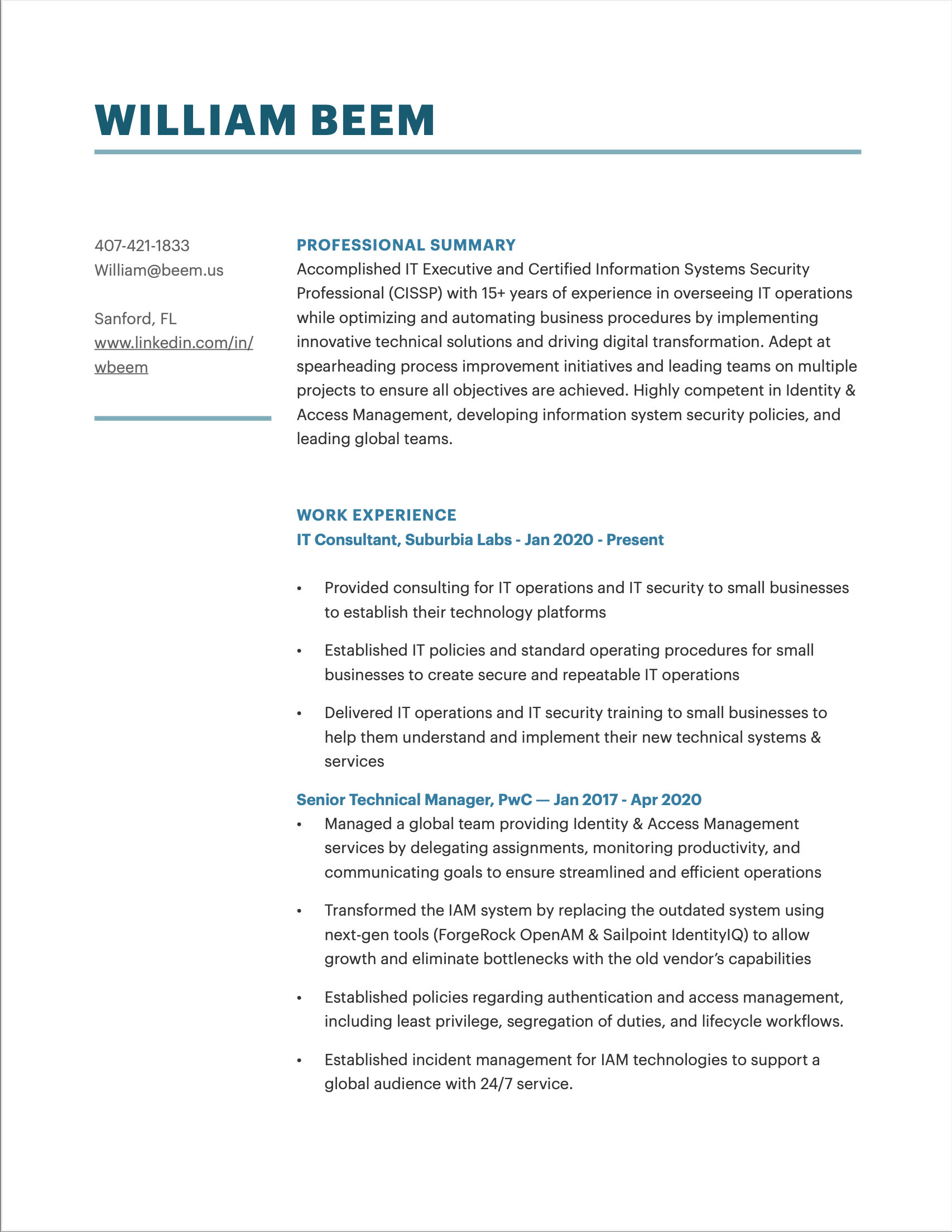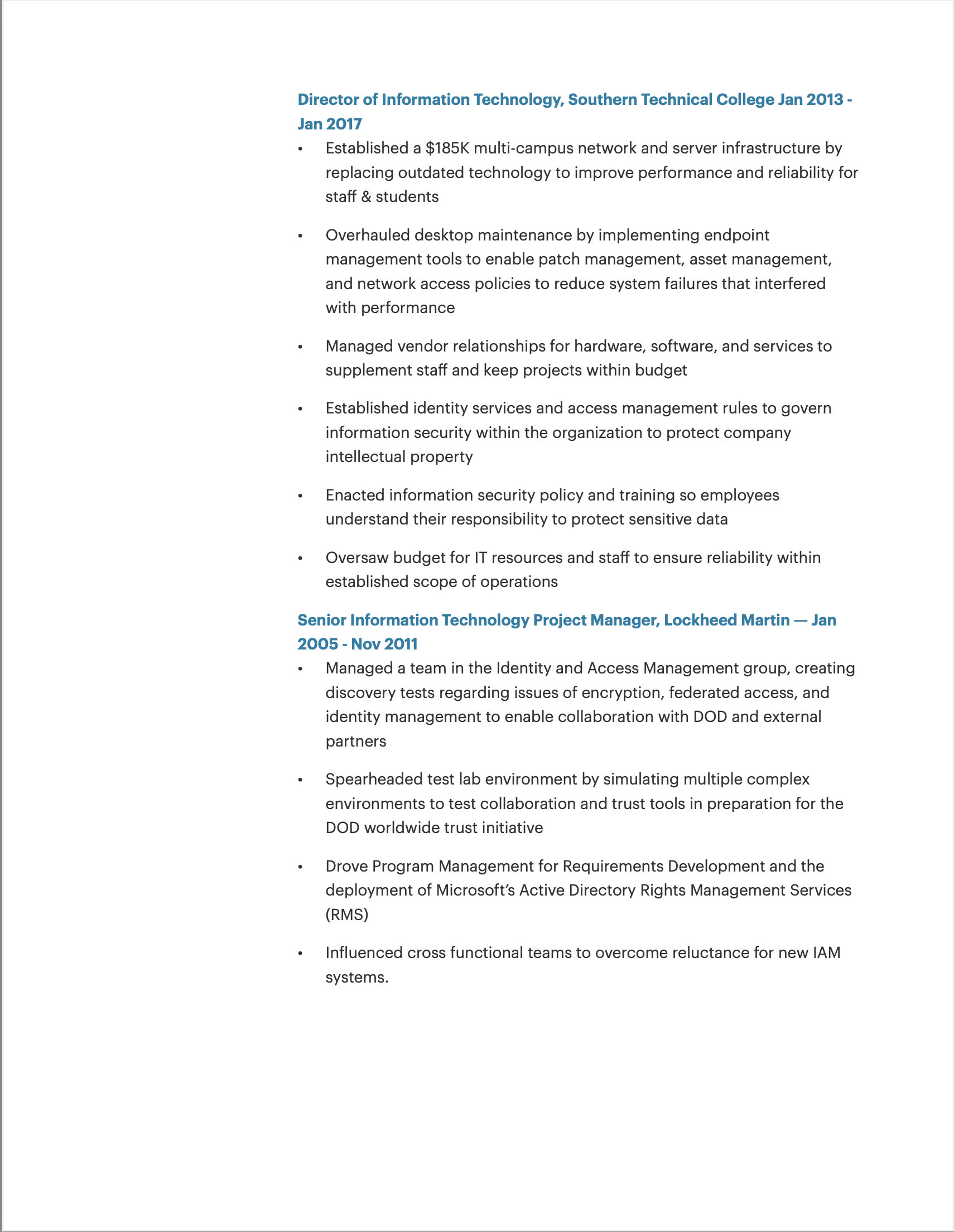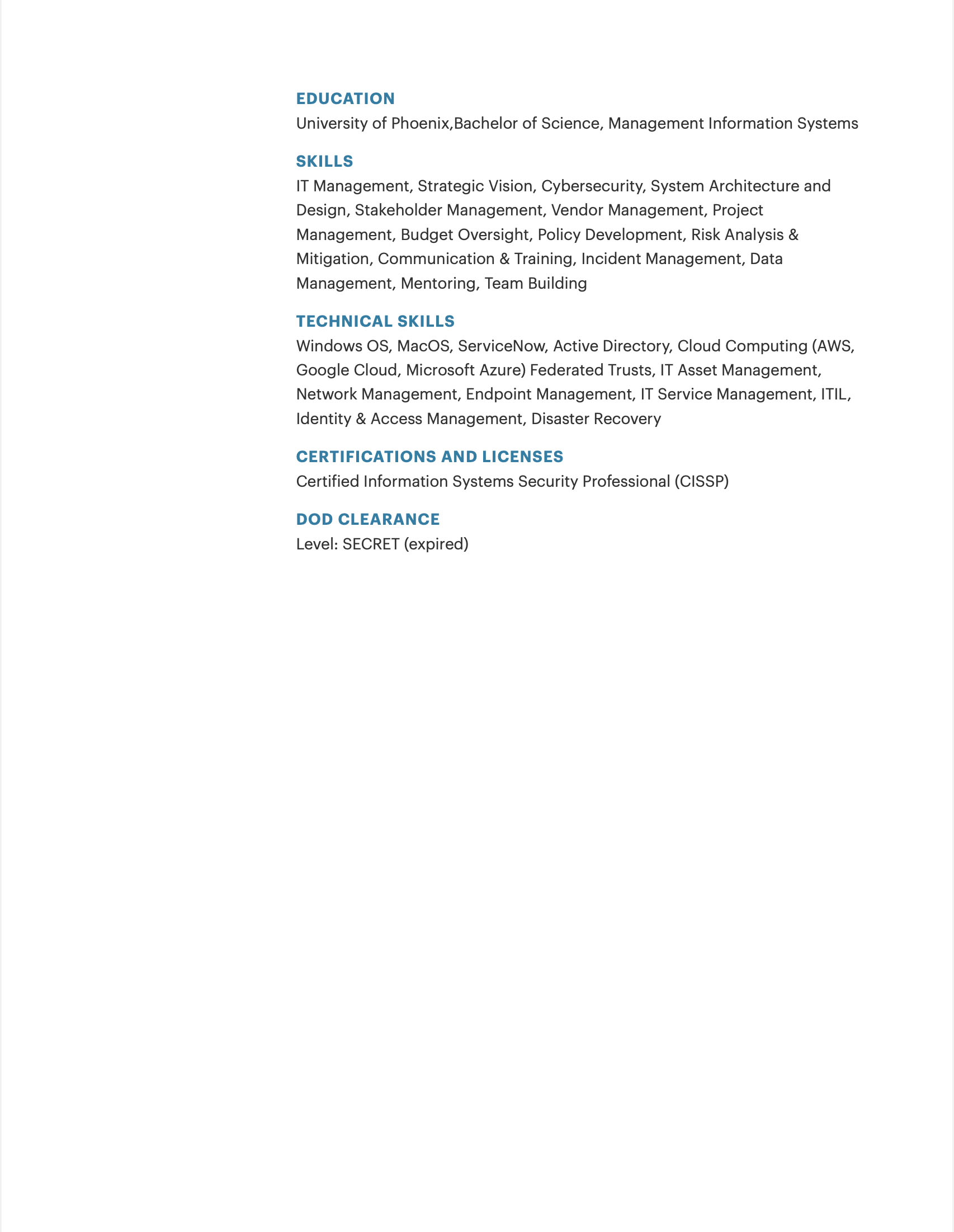William Beem
Accomplished IT Executive and Certified Information Systems Security Professional (CISSP).

About William Beem
Accomplished IT Executive and Certified Information Systems Security Professional (CISSP) with 15+ years of experience overseeing IT operations while optimizing and automating business procedures by implementing innovative technical solutions and driving digital transformation.
Adept at spearheading process improvement initiatives and leading teams on multiple projects to ensure all objectives are achieved. Highly competent in Identity & Access Management, developing information system security policies, and leading global teams.
SKILLSET
IT Management, Strategic Vision, Cybersecurity, System Architecture and Design, Stakeholder Management, Vendor Management, Project Management, Budget Oversight, Policy Development, Risk Analysis & Mitigation, Communication & Training, Incident Management, Data Management, Mentoring, Team Building
TECHNICAL SKILLS
Windows OS, MacOS, ServiceNow, Active Directory, Cloud Computing (AWS, Google Cloud, Microsoft Azure) Federated Trusts, IT Asset Management, Network Management, Endpoint Management, IT Service Management, ITIL, Identity & Access Management, Disaster Recovery
MY EXPERIENCE
I've worked for some great employers
Let me bring their experience to your business
Want to get in touch?
Drop me a line 👇










